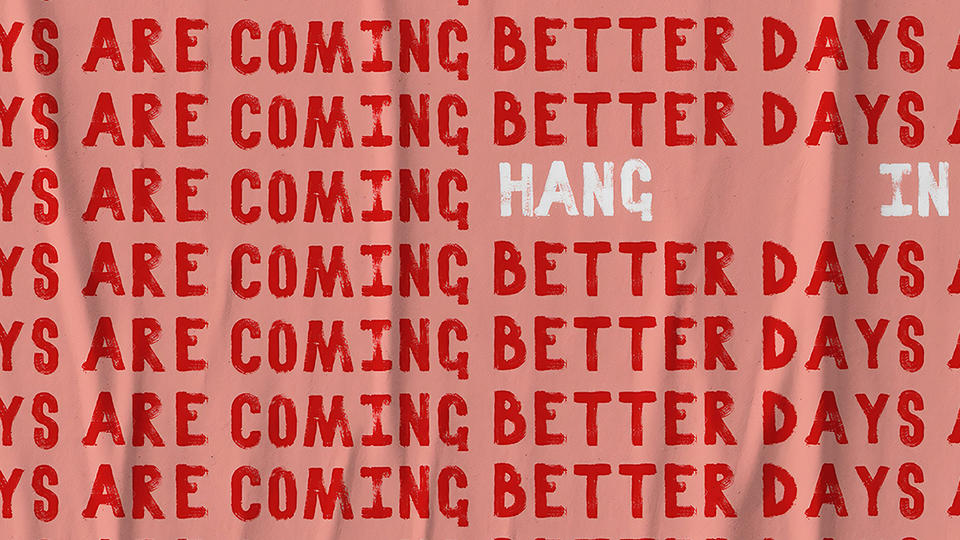Trial Balloon
Two classic business theories are put to the test.


Based on research by Prashant Kale and Phanish Puranam
Two Classic Business Theories Put To The Test
- Managers are more likely to seek equity in a partner firm when they think the firm’s resources offer a competitive advantage.
- Managers are also more likely to seek equity in a partner firm when they think the partnership will lower their transaction hazard.
- Contrary to existing theory, uncertainty in the market makes managers less likely to seek equity ownership in a partner firm.
When it comes to a company’s equity ownership structure, the decisions that managers make are important and long-lived. So naturally, years of study have been devoted to describing — in theory, at least — what managers should consider as they navigate these intricate choices.
But what role do these theories play in a real life test?
For answers, Rice Business professor Prashant Kale joined INSEAD professor Phanish Puranam in a study of 66 managers and their decision process. The study was designed to measure how the factors cited in two widely held theories of equity ownership — the “resource-based view” and the “transaction-cost economics view” — impact managers when they’re making choices about equity ownership.
The resource-based view (RBV) maintains that managers seek equity in another firm to get access to that firm’s resources and sharpen their own firm’s competitive edge. A company that sells athletic shoes, for example, may find it worthwhile to partner with a manufacturing plant in order to add its capabilities to its own. Equity ownership in a factory could give the shoe company access to manufacturing resources, to decision-making power over the plant and to seamless coordination between manufacturing and other operations.
The transaction-cost economics (TCE) view, in contrast, emphasizes how equity lowers the transaction hazards in business dealings between firms. The sports shoe company, for example, may sell a high-profile sneaker that requires a special shoelace developed by another firm. In that case, the shoe company might pursue equity ownership in the shoelace company in order to gain some control over the firm. This, in turn, would accomplish two things: lower the risk of self-interested behavior from the shoelace company and spark greater cooperation between the firms in their business dealings.
Past studies have measured how much managers consider the factors cited in these two theories when they make decisions about ownership structures. These studies, however, depended mainly on archival data, and many didn’t control for other variables that might influence managerial decisions. Ultimately, Kale and Puranam write, this previous research didn’t connect the dots between theory and real life business practice.
To establish a clear link between theory and actual managerial decision-making, Kale and Puranam asked respondents to imagine that they were seeking an inter-firm partnership in order to secure another firm’s technological resources. At the same time, the researchers controlled for non-RBV and non-TCE based factors that might influence managerial choices.
Using a methodology called policy capture, Kale and Puranam came up with 30 different scenarios that required respondents to consider various decision-making criteria. For each scenario, the respondents were asked whether they’d choose:
- a contractual relationship
- a minority equity stake in the firm
- a non-majority equity stake in the firm, or
- majority equity stake/acquisition.
The researchers took care to design some of the decision-making criteria using RBV or TCE factors, and other criteria based on control factors. This allowed them to measure exactly how much the theoretical criteria influenced managers’ choices.
What they found was that resource-based and transaction-cost factors did indeed influence the managers’ choices. Most influential were factors related to gaining a competitive edge, as proposed by RBV theory. The greater the apparent value of the RBV factors, the higher the level of ownership the managers wanted in the new partner firm.
Transaction-cost factors also shaped managers’ equity ownership choices, but not as much as the prospect of honing competitiveness. Transaction-cost advantages influenced managers’ decisions to seek an equity stake in the firm. But when those advantages grew, it didn’t increase managers’ interest in raising their levels of ownership of the partnering firm.
What about the role of demand uncertainty in these decisions? Contrary to the tenets of transaction-cost theory, Kale and Puranam discovered, uncertain demand conditions actually made respondents less interested in an equity stake in the partner firm.
In short, and just as RBV- and TCE-based theories suggest, the resources and relationships offered by inter-firm partnerships strongly swayed managers’ decisions about the kind of equity ownership agreements they wanted. In practice as in theory, these key assets are deemed worth the investment — if the market is stable. When market demand is uncertain, however, real life managers don’t react as transaction-cost theory prophesies they will. Instead, uncertain demand conditions make respondents less keen for an equity stake in a new partner firm.
Human nature, in other words, is highly predictable. But there’s still no substitute for watching what happens in the open air of real business.
Prashant Kale is an associate professor of strategic management at Jones Graduate School of Business at Rice University.
To learn more, please see: Kale, P. & Puranam, P. (2013). The design of equity ownership structure in inter-firm relationships: Do managers choose according to theory? Journal of Organization Design, 2(2), 15-30.
Never Miss A Story
Keep Exploring
How to get organization redesign and strategy execution right
Prof. Prashant Kale, Associate Professor of Strategic Management at the Jessie H. Jones School of Business, Rice University and Faculty at FLAME Centre for Executive Education (FCEE) comments on bridging the gap during organizational redesign.
A chic Houston house where all the residents are cats
Tucked amid the townhouses of Upper Kirby, the plain brick building draws little attention. Its lawn is neat, its stairs swept. Occasionally, hissing erupts inside. But that’s to be expected. All the residents are cats.
Outside Houston, a chef with a flair for the avant-garde serves up three hours of sorcery
“I love to educate people,” says Skinner, who is also a business lecturer at Jones Graduate School of Business at Rice University in Houston and has three books to his credit, including the respected “Introduction to Decision Analysis.”
Why limited-time offers entice shoppers to buy
As I have written in earlier blog posts, price is a powerful tool used by marketers to get customers to push the “buy” button. Few marketing methods are as tried and tested as a price promotion, which is an incentive with an expiration date. Most of us have availed of limited-time offers like discount coupons, sales, daily deals, flash sales, etc.
Shop 'Til You Drop
Where do you shop in a multichannel, multimedia world — and why?


Based on research by Utpal Dholakia, Barbara E. Kahn, Randy Reeves, Aric Rindfleisch, David Stewart and Earl Taylor
Where Do You Shop In A Multichannel, Multimedia World — And Why?
- Consumers can shop 24 hours a day without ever leaving their living rooms.
- It’s time to better understand the galaxy of channels we use to shop online and in stores.
- Consumers combine different shopping channels to suit their rational and emotional needs.
Back in the Paleolithic Age of online marketing — say, 15 years ago — the idea of online sales as a significant business vehicle for brands such as Target or Walmart was almost unimaginable. Shopping meant going to a store, because stores were where sales happened.
Today, people shop with their computers, via watches and phones, even through their refrigerators. Sellers market on multiple platforms, digital and traditional, including the brick and mortar store. Even the glossy catalogues that arrive in the mail still prompt sales.
Advancing technology has made it possible for consumers to shop not only across a staggering number of channels — but to do so in a constellation of ways. Say a shopper has broken down and decided to buy a wildly popular all-purpose pressure cooker. She might start off using the internet to glean product details and prescreen options. Then she might visit a retail outlet to eyeball the product herself. Finally, after mulling for days, she may impulsively whip out her phone to make the order.
But what determines these particular choices of shopping venues? Rice Business professor Utpal M. Dholakia set out to map this new landscape of consumerism. Joining Dholakia were colleagues Barbara E. Kahn of the Wharton Business School, Randy Reeves of Macy’s Department Stores, Aric Rindfleisch of the University of Wisconsin, David Stewart of the University of California at Riverside and Earl Taylor of the Marketing Science Institute.
Consumer behavior, the researchers knew, is too complex — too all-over-the-map — to develop any sort of quantum marketing theory to explain it. So while interested in answers, the team aimed instead to frame useful questions. Their goal was to bring attention to the multi-channel retailing environment, creating a comprehensive but flexible way to investigate how shoppers navigate the intricate modern marketplace.
More specifically, Dholakia’s team wanted to learn exactly what consumers are finding. What do they do while using various internet and other tools to shop? When do different types of shoppers grab their devices and buy? What obstacles crop up as shoppers wend their ways through this maze of venues? Finally, the researchers wanted to map the vast scope of research issues surrounding this customer behavior.
It was fairly simple to answer the first question: Why do we use such diverse shopping tactics? Usually, it’s about getting the best deal. Some people, however, take their shopping seriously, savoring the idea that they are approaching their task both thoughtfully and thoroughly. Others get a genuine thrill out of the social experience of being part of a community, or from experimenting with different products and ways to buy them. And some shoppers head straight to a certain website or media source because they expect a specific price tag.
Many consumers, Dholakia and his co-researchers found, constantly change the means they use to shop. In one survey of 337 multichannel shoppers, for example, the researchers found that 52 percent reported migrating back and forth from offline to online channels across four product categories including books, airline tickets, stereo systems and wine. This hopscotching from brick and mortar to catalogues, to online and back, could be predicted by certain factors including price, the product they were looking for, how they evaluated the product and even waiting time.
The researchers also found that each type of shopper uses channels differently. Penny-pinchers don’t care where they buy, as long as the price is right. Generalists shop online or in the store because of the overall shopping experience. Traditionalists shun new ways of shopping, and multichannel enthusiasts happily bounce between stores, the internet and catalogues. Finally, the hard-core, store-focused customers will only shop in a place with doors and shelves.
To add a layer of complication, some don’t use channels to shop at all. They just want information. These are the shoppers who pop into to a store to test drive a phone before they buy it online. They study the pressure cooker in a catalogue before they go to the store.
And even within all the online options, there are innumerable detours to explore. Say you want a Nikon camera. You might go to an enthusiasts’ page such as Nikonians.org before you decide which model to buy, whether it’s online or at the local camera shop. Your friendly chat with the guy who owns the local camera store may now turn into a real-time virtual chat with a company representative.
The new marketplace, in other words, has become a dizzying landscape. Shoppers, clearly, have risen to the challenge. Nevertheless, it’s in the interests of sellers and buyers both to understand more deeply not only why we buy what we buy — but where.
Utpal M. Dholakia is the George R. Brown Professor of Marketing at Jones Graduate School of Business at Rice University.
To learn more, please see: Dholakia, U. M., Kahn, B. E., Reeves, R., Rindfleisch, A., Stewart, D., & Taylor, E. (2010). Consumer behavior in a multichannel, multimedia retailing environment. Journal of Interactive Marketing, 24(2), 86–95.
Never Miss A Story
You May Also Like
Keep Exploring
Management accounting: Expanding relevance
A few of the leaders in the major developments of the profession are Major J. Lee Nicholson, Robert N. Anthony, Ross G. Walker, Charles T. Horngren, Robert S. Kaplan, Eliyahu M. Goldratt, James O. McKinsey, Kenneth A. Merchant and Marc J. Epstein who was, until 2014, a Distinguished Research Professor of Management at Jones Graduate School of Management at Rice University in Houston, Texas. They and others have taken the management accounting profession to where it is today.
Rice University's Rodriguez on Mexico tariffs, China
Peter Rodriguez, dean of Rice University Jones Graduate School of Business, discusses U.S.-China trade and President Trump’s proposed tariffs on Mexican goods on "Balance of Power." "There's such deep integration across the Mexico-US border, and the Canadian border for that matter, I think that's often misunderstood. So, when we're really trading goods, it's not a wholy-produced-Mexican export that's coming across...That cross border trade is really important." - Peter Rodriguez
Rice University launches corporate leadership program
The program will be held twice on the Rice University campus and once in The Woodlands in 2019.
Bloomberg Markets: Balance of Power'
"Balance of Power" focuses on the politics and policies being shaped by the agenda of President Trump's administration.





